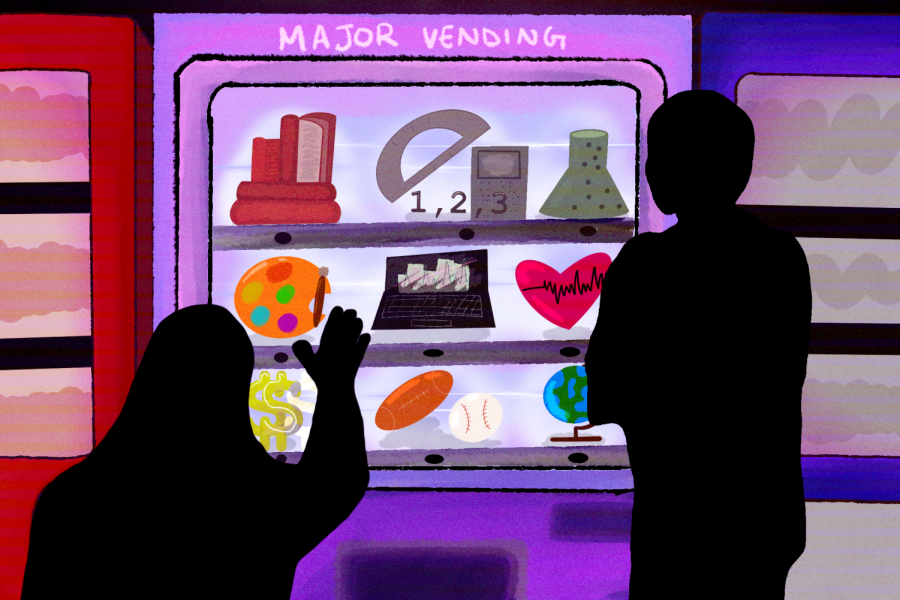Give internal transfer students more opportunities
December 1, 2021
There’s something all UT students have in common: we all had to apply to be here. We’ve all earned our spots here on campus, and being on this campus means finding and focusing on your passion. Even if it takes you a few semesters to find it, there are always options to transfer colleges (internally transfer).
While options to internally transfer do exist, students are only granted two attempts to apply to their new college. 65% of UT students change their major at least once during their years here, and for students dreaming of following their passions, they shouldn’t have the stress of limited attempts on their backs.
UT must give students more than two opportunities to internally transfer to allow students to pursue their passions and make the most of their time here.
Students looking to internally transfer between colleges at UT are allotted two attempts to apply to each specific college before they can no longer transfer into that school. In September, the Office of Admissions launched a new centralized application for the spring 2022 semester that allows students to focus their time on a single application, rather than many varying forms and questions. This centralized application eased a part of the process for students, yet limited attempts still burden many.
Rita Miller, director of the Office of Admissions, described the reasoning behind the limit on attempts for applicants.
“The rule of applying twice (is) set up in the general information catalog. The information (in) that is something that’s voted on by faculty council in the colleges and schools,” Miller said.
Miller failed to provide further reasoning for the two attempt rule or make a statement about whether or not the policy could be updated.
The process is by no means simple or easy, and a limit on the number of attempts to apply to each college adds unnecessary stress and pressure on already distressed college students. Students deserve to feel like their passions are worthwhile, even if applying to a specific college takes multiple tries.
Undeclared freshman Sanam Sharafkhaneh explained that the limited number of attempts adds extra and unnecessary stress to undeclared students who are already concerned with finding their passion.
“If you only have a passion (for) one thing, and you only have two attempts to do it, that just leaves you stuck if you don’t get in,” Sharafkhaneh said. “So I have to think about other majors I want to do or even an open major that I’m not fully passionate about but … I need a major to graduate.”
The number of times students have applied shouldn’t be a limiting factor in their application. It takes time to adjust and learn, and restricting the chances students are given to apply dismisses the notion of their hard work. Students deserve a safety net of knowing that they can continue to apply to competitive programs and transfer to the school of their dreams, no matter how many tries it takes.
In the class of 2015, 1,064 students transferred from UT to an entirely different university to finish their degree plan. UT needs to allow students more than two attempts to apply to their choice school and pursue their passion, or they risk losing valuable members of the UT community.
Limiting the number of attempts students can apply to a college could ultimately force them to decide between following their passions and being at UT — a choice no student should have to make.
DuFresne is a journalism freshman from Dallas, Texas



